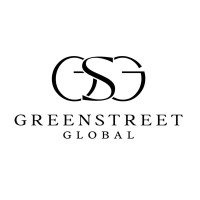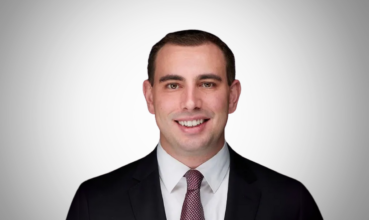“Indianapolis has always had a strong local buyer group,” notes Cameron Benz, First Vice President with CBRE‘s Indianapolis-based Multifamily team, “but with older vi...
Fox Rothschild's Julie Schechter on Building New York's Leading Co-op Law Practice




When Julie Schechter graduated from Brooklyn Law School during the recession 15 years ago, she jokes she “begrudgingly” took a job at her father’s small firm representing co-ops and condos because he was the only one hiring. That career move evolved into building one of New York City’s preeminent co-op and condo practices, now serving over 500 properties ranging from luxury Fifth Avenue co-ops to Mitchell-Lama developments across the boroughs.
“It’s a very specialized practice,” Schechter explains. “Co-ops are corporations, so it’s a little bit of corporate law. There’s a component of construction law because we do a lot of construction contracts with architects and engineers. And then there’s also traditional real estate components.” This multi-faceted expertise, combined with lessons learned from industry pioneers who established co-op law in the 1970s, has positioned her team as a leading voice in the field.
What distinguishes their approach is a commitment to practical solutions and collaborative problem-solving. “We work well together. We brainstorm together when there’s an issue that I can’t resolve,” she notes. “Often, unknowingly, the clients will get the benefit of six partners’ minds instead of just one.” This team-oriented mindset extends to finding practical solutions that avoid unnecessary litigation. “I’m not one to rush to litigation, which I think is a mistake. Some lawyers tell you you need to be aggressive – it’s not my approach.”
The strategic move to Fox Rothschild in August 2024 marked a significant expansion of capabilities for Schechter’s team. Beyond bringing their entire co-op and condo department and client roster, the move provided access to crucial complementary practices. “They have a great land use practice, commercial real estate, leasing, and environmental law practices,” she notes. “You wouldn’t think you need environmental law that often, and then suddenly there are environmental issues. Having these expanded resources has already proven tremendous for our clients.”
Among the most pressing issues facing boards is Local Law 126, New York City’s new garage inspection requirements implemented after a deadly collapse. “The problem for buildings is, if you’re in a 50-year-old building, you never needed to do this before. You can imagine how expensive your first evaluation is going to be,” Schechter explains. The law requires qualified engineers to inspect and certify garage safety, with steep fines for non-compliance. Complex questions arise about responsibility and funding, particularly in buildings where garage ownership structures vary between co-op corporations, individual unit owners, and commercial operators.
Another significant challenge is the Corporate Transparency Act, which has unexpectedly swept up homeowners associations in its reporting requirements. “We were getting a lot of pushback from our board members who were saying, ‘Hey, we’re unpaid volunteers. Why am I giving the government information about myself?'” Schechter notes. Her team has been helping boards navigate these requirements while the law continues to evolve through legal challenges and regulatory adjustments.
Access agreements between neighboring properties have also become increasingly contentious. What was once handled informally has become increasingly complex and costly. In one heavily litigated case, Schechter’s team pioneered using professional appraisals to quantify access agreement values. “The appraisers were able to tell us the value of the apartment as if it was being leased out – what would be the value with the terraces, and what would be the rental value without it,” she explains. While this innovative approach didn’t set the precedent they hoped for, it demonstrates the kind of creative problem-solving that sets the team apart in navigating new legal territory.
Looking ahead, Schechter sees significant opportunity to expand their practice to Florida’s robust condominium market, leveraging Fox Rothschild’s existing presence in the state. “We’re the biggest in New York. Let’s go be the biggest in Florida,” she says, highlighting the potential to bring their expertise to new markets. The expansion would allow them to apply their extensive experience with New York’s complex regulatory environment to Florida’s growing needs, particularly in the wake of recent regulatory changes.
For Schechter, success in co-op and condo law comes down to understanding its unique nature. “For people, it’s their homes,” she reflects. “People feel more invested in it than if you were a different type of lawyer dealing with a client.” This understanding, combined with deep legal expertise and practical problem-solving, continues to guide her team as they help communities navigate an increasingly complex regulatory landscape.
Similar Articles
Explore similar articles from Our Team of Experts.


After nearly three decades at the forefront of sustainable construction, Robert Politzer has witnessed a sea change in attitudes toward green buildings. The founder and CEO of GreenStreet Gl...


Salt Lake City’s real estate landscape is experiencing growing pains – but in all the right ways, according to Cushman & Wakefield’s leading investment sales team. “W...


When Ross D. Eisenberg launched RDE Advisors in 2018, he saw an opportunity in Manhattan’s commercial real estate market that many had overlooked. After spending a decade at industry g...


While premium Class A office towers in downtown cores struggle with historically high vacancy rates, previously overlooked Class B and C office spaces—typically older buildings with fewer ...




